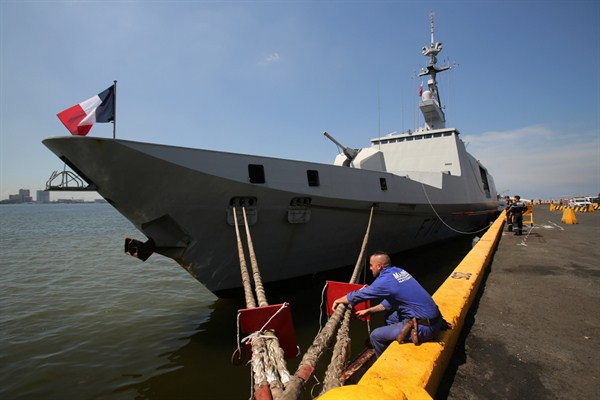France has always claimed to be a power in the Asia-Pacific, but some recent strategic developments have given additional credence to that claim. In April, France won a landmark contract to sell 12 attack submarines to Australia, after securing a deal with India for the purchase of 36 Rafale fighter jets last year. The Australia submarine contract, worth some $39 billion, is viewed in Paris as heralding a new beginning for France-Australia ties, which until the late 1990s were marred by disputes over French nuclear tests in Polynesia. Australia had been mulling Japanese and German bids.
The Asia-Pacific market is not a new one for the French defense industry, which, since the 1980s, has sold major equipment to India, Pakistan, Malaysia, South Korea and Taiwan, among others. But the market is growing. From 2010 to 2015, defense deals with the region made up 23.5 percent of the total amount of orders abroad. Although Canberra’s choice of French submarines was primarily based on technical and operational criteria, its decision took place in the context of a growing bilateral relationship, based in particular on common interests in the South Pacific and Indian Ocean, and the existence of partnerships on both sides with Japan and India. Expect maritime cooperation between France and Australia in both the South Pacific and Indian Ocean to be taken to a new level.
These growing ties with Australia reflect France’s outreach to the Asia-Pacific more broadly. That builds on the White Papers on National Defense and Security published in 2008 and 2013, which acknowledged and asserted French interests in the region, much more than the previous 1994 White Paper did. The Defense Ministry followed up with its own documents explaining French policy in the region.

